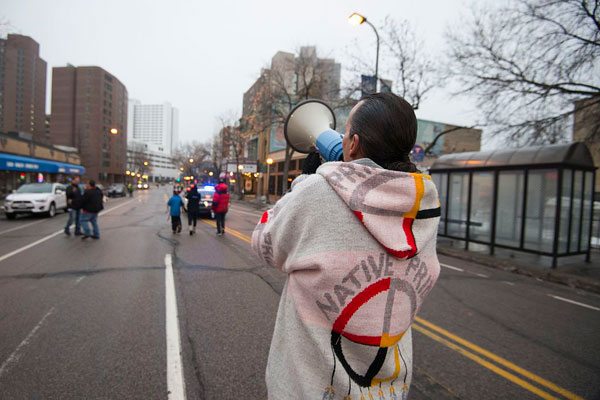
April 23, 2018, Politico and Indian Country Today
In responding to a request from tribal leaders to exempt American Indians from Medicaid work requirements, the Trump administration has asserted that such an exemption would violate civil rights laws barring race-based preferences. American Indians and Alaska Natives (AIAN), however, belong to 566 US-recognized sovereign nations, and those relationships are governed by longstanding treaty obligations and the US Constitution, not racial identity.
The new policy “does not honor the duty of the federal government to uphold the government-to-government relationship and recognize the political status enshrined in the Constitution, treaties, federal statutes, and other federal laws,” said Jacqueline Pata, executive director of the National Congress of American Indians, in Indian Country Today. “Our political relationship is not based upon race.”
In the U.S. about 5 million people identify as either full or part AIAN. The Indian Health Service (IHS) provides free care to 2.2 million AIANs who belong to federally recognized tribes. All of these native peoples are also eligible for Medicaid if they meet state and federal requirements. According to the Kaiser Family Foundation, Medicaid covers one in four (27 percent) of AIAN adults and half of AIAN children.
Medicaid coverage gives beneficiaries access to medical services that may not be available through the Indian Health Service. This is important, since overall, AIANs have comparatively poor health status as compared to the larger non-Native population. More than a quarter (26 percent) of non-elderly AIAN adults rate their health as fair or poor compared to 15 percent of the non-Native adults.
Despite the obligation of the U.S. government to fund health services for native peoples, federal appropriations for the Indian Health Service are not adequate to meet the needs of the population. The government provides about $4.8 billion in direct payments; this budget is supplemented by $800 million in Medicaid payments, along with smaller amounts from Medicare and private insurance.
Sign up for our free newsletters
Subscribe to NPQ's newsletters to have our top stories delivered directly to your inbox.
By signing up, you agree to our privacy policy and terms of use, and to receive messages from NPQ and our partners.
The expansion of Medicaid under the Affordable Care Act (ACA) provided about $100 million in new revenues to IHS, strengthening health care delivery and increasing access to care for 237,000 newly insured AIANs. Two years following the implementation of the ACA, the uninsured rate for AIANs had fallen from 24 percent to 17 percent, with the largest drop in Medicaid expansion states. An Urban Health Program in Arizona reported that one of its clinics saw a drop in the uninsured rate of patients from 85 percent to 10 percent.
The Indian Health Service and tribal leaders fear that work requirements will result in a precipitous drop in AIAN Medicaid beneficiaries, damaging budgets and access to medical services. Notably, jobs are scarce on Indian reservations. In 2016, the unemployment rate for AIANs was 12 percent, triple the rate for the general population. The barriers to employment, including transportation, job skills, child care, and other supports, are significant—and states that are implementing work requirements are not providing the infrastructure necessary to overcome these barriers. In fact, most advocates believe that work requirements are designed to reduce Medicaid enrollment.
Lawyers for the tribal governments have submitted a memo to the Trump administration warning that the Department of Health and Human Services ruling violates its legal responsibilities. “[The Centers for Medicare and Medicaid Services (CMS)] has a duty to ensure that [American Indians] are not subjected to state-imposed work requirements that would present a barrier to their participation in the Medicaid program,” they write. “CMS not only has ample legal authority to make such accommodations, it has a duty to require them.”
“The United States has a legal responsibility to provide health care to Native Americans,” said Mary Smith, acting head of the Indian Health Service during the Obama administration and a member of the Cherokee Nation, in Politico. “It’s the largest prepaid health system in the world—they’ve paid through land and massacres—and now you’re going to take away health care and add a work requirement?”
With all the its implications for tribal sovereignty, looks like this latest decision by the administration is likely to end up in court.—Karen Kahn










